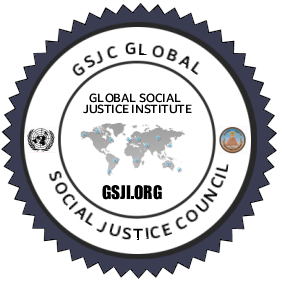GLOBAL SOCIAL JUSTICE INSTITUTE
The Committee regularly established a pre-sessional working group of four Committee members to assist in the drafting of issues to be considered in connection with States reports. Consideration of reports takes place over two or three meetings held in public. After the report is introduced to the Com- mittee, the State representative has an opportunity to respond to written or oral questions raised by members of the Committee. NGOs are permitted to send submissions to the Committee. Following consideration, the Committee adopts its “comments” in a closed meeting making suggestions and recom- mendations to the State party. Comments are issued as public documents at the end of each session of the Committee and included in the annual report to the General Assembly. Complaints by individuals
| ||
Virus Justice Italian Freedom Day J23 History of Racism Book-HR Join Commission Ethics Badges Site Map Education Policy Agenda Top Social Justice Issues Anti Slavery Book Truth and Justice Commission USA Ethnic Justice Truth and Justice Commission * Anti Slavery Society - Election Intrigrity George Mentz Colorado Springs Coronavirus Biden Fault Negligence |
Accreditation Bodies: www.GAFM.com * www.GAFM.org * www.CertifiedProjectManager.eu * www.AAFM.org * Certified Project Manager * Certified e-Commerce Consultant * Royal Law Society * Royal Business Society * Royal Business College * Royal Fellows * Royal Economics Academy * Oxford Law School * AAFM * Certified International Project Manager *

